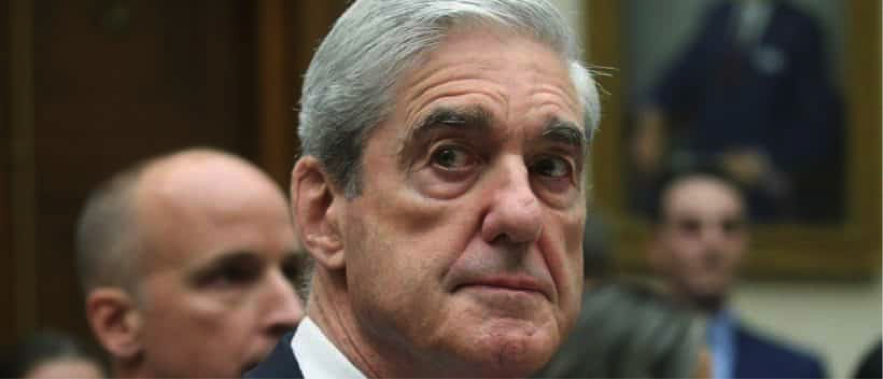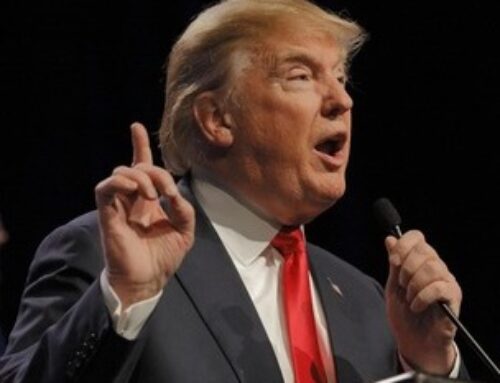 Along with millions of Americans and innumerable others around the world, I watched the entire Mueller hearing on July 24. As was evident within the first hour, it would become a profoundly embarrassing experience for Bob Mueller and a disaster for the Democrats who had hoped his testimony would confirm presidential malfeasance and pave the way for impeachment.
Along with millions of Americans and innumerable others around the world, I watched the entire Mueller hearing on July 24. As was evident within the first hour, it would become a profoundly embarrassing experience for Bob Mueller and a disaster for the Democrats who had hoped his testimony would confirm presidential malfeasance and pave the way for impeachment.
The word that both liberal and conservative commentators chose to describe the hearing was “disastrous.” Its central figure, Robert Mueller has been regarded as a brilliant lawyer and prosecutor. So what possible explanation can there be for his uncharacteristic vacancy during the hearing? My guess: he has dementia.
Anyone who has cared for a person with any form of dementia (as I have) no doubt recognized its symptoms in Mueller’s performance. At first his mantra of “that was not in my purview,” and “I can’t answer that,” could have been taken as clear-minded avoidance of security-related issues. But when his responses began to suggest, first that he didn’t write the report, and then that he hadn’t even read it, it became apparent that his mind was not clear at all but muddled.
Mueller was confused not only about matters that he should have understood in great depth, but also unclear about what his own report said and what it did not!
Worse than that, he admitted he was unfamiliar with people and organizations—notably Glenn Simpson, Fusion GPS, and the Steele Dossier—that played a defining role in the matter he was charged to investigate. The look on his face that accompanied those admissions revealed, in my view, that he was not fully present mentally. (The only other explanation is that he was intending to feign confusion to deceive millions of people, and that assessment would be uncharitable.)
If my conclusion that Mueller is suffering from dementia is correct, it raises a number of important questions.
Has the dementia been diagnosed yet? If so, was the diagnosis made before or after Mueller was named Special Counsel?
If before, and Deputy Attorney General Rod Rosenstein knew of it, why did he not exclude Mueller from consideration because of the importance and complexity of the required investigation and the likelihood of the worsening of Mueller’s dementia?
If the dementia was diagnosed only after Mueller was appointed Special Counsel (or has not yet been diagnosed), its symptoms were surely manifested at some point during the investigation. Did Rosenstein at that point take any action to preserve the integrity of the investigation from judgment errors by Mueller?
For example, did Rosenstein take over the selection of Mueller’s staff? Did Rosenstein even choose chief assistant Andrew Weissmann? Did Weissmann then select the rest of the team? Such actions would explain Mueller’s odd profession of ignorance about his staff’s political affiliations, and perhaps explain as well the fact that almost all of them were not only supporters of Hillary Clinton but also contributors to her campaign.
Or instead, did Rosenstein at some later point allow, encourage, or direct a staff member—perhaps Weissmann—to become the de facto Special Counsel and to write the final report? Such action would explain why Mueller seemed unfamiliar with important details of the report—in particular, those surrounding the strange and controversial statement that the Special Council was not EXONERATING the President.
To close the matter of the Mueller report and hearing without answering these important questions would do a disservice to Mueller, President Trump, and the American public. Therefore, Republican congressmen on the House Judiciary and the House Intelligence Committees should demand that subpoenas be issued at once to Rod Rosenstein, Andrew Weissmann, and perhaps other members of the Special Counsel team, so that these and related questions can be answered.
Copyright © 2019 by Vincent Ryan Ruggiero. All rights reserved



